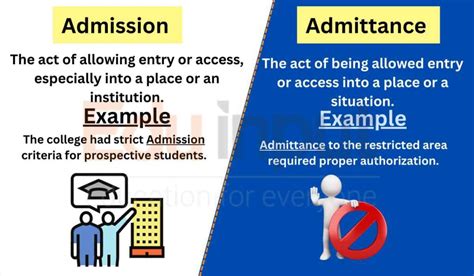In the competitive world of higher education, understanding the intricacies of admissions is crucial. One option that has gained increasing popularity is deferring admission, which allows admitted students to postpone their enrollment for a period of time.

What is Defer Admission?
Deferring admission is a formal request to delay your matriculation at a college or university for one or more semesters or academic years. Typically, students request deferrals to explore personal interests, gain real-world experience, or address unexpected circumstances.
Reasons for Deferring Admission
Numerous reasons exist for students to consider deferring admission. Some of the most common include:
- Pursuing Gap Year Opportunities: Many students utilize deferrals to engage in meaningful gap year experiences, such as volunteering, traveling, or exploring personal interests. These experiences can enrich their academic and personal growth.
- Gaining Work Experience: Deferring admission can provide time to acquire valuable work experience in relevant fields, enhancing their resume and future job prospects.
- Addressing Personal Circumstances: Unforeseen events, such as military service, family obligations, or medical needs, may necessitate deferring admission to address personal commitments.
- Exploring Other Options: Deferring admission offers students flexibility to further explore college options, including visiting campuses, attending college fairs, and researching other academic programs.
Benefits of Deferring Admission
Deferring admission can provide students with several advantages:
- Enhanced Maturity and Perspective: A gap year or other experiences can foster personal growth, maturity, and a broader perspective, improving a student’s readiness for college.
- Increased Job Prospects: Work experience can equip students with practical skills, industry knowledge, and professional connections, making them more competitive in the job market.
- Reduced Tuition Costs: For students who defer admission for a year or more, outside work experiences may help them offset future college expenses.
- Strengthened Admissions Profile: Some colleges view students who have taken gap years or acquired work experience as more well-rounded and motivated candidates.
Procedure for Deferring Admission
The process for deferring admission varies among institutions. However, generally, students should submit a formal written request to the admissions office outlining their reasons for requesting a deferral and the proposed start date.
- Early Notification: It is advisable to inform the admissions office of your deferral intentions as soon as possible, typically after receiving an acceptance letter.
- Required Documentation: Some colleges may require additional documentation, such as a letter of intent or a gap year plan, to support your request.
- Extension Renewals: If needed, students can apply to extend their deferral periods, but they may need to provide justification for extended absences.
Common Mistakes to Avoid
To maximize the benefits of deferring admission, students should avoid certain pitfalls:
- Unclear Reasons for Deferral: Ensure you have well-defined and compelling reasons for requesting a deferral.
- Procrastination: Submit your deferral request promptly to avoid potential disappointment or logistical challenges.
- Incomplete or Insufficient Documentation: Provide a clear and thorough explanation of your deferral request and submit any required supporting documents.
- Lack of Communication: Maintain open communication with the admissions office throughout the deferral process, particularly regarding any changes in your plans.
Case Studies of Successful Deferrals
Numerous students have utilized deferrals to enhance their college experience and achieve their career goals:
- According to a study by the Gap Year Association, 90% of students who took gap years reported increased maturity, independence, and self-reliance.
- A survey by the National Association of Colleges and Employers (NACE) found that employers place a high value on work experience, with 84% of respondents considering it valuable in hiring decisions.
- A study by the College Board showed that students who deferred admission for a year had slightly higher GPAs and graduation rates than those who started college immediately.
Additional Considerations
When considering deferring admission, it is essential to weigh both the potential benefits and any potential drawbacks:
- Missed College Experiences: Deferring admission may result in missing out on early opportunities for campus involvement, social connections, and extracurricular activities.
- Financial Implications: Deferring admission could extend the overall cost of college, including additional expenses such as gap year travel or living expenses.
- Changing College Landscape: College admissions policies and available opportunities may change over time, potentially impacting your future options if you defer.
Conclusion
Deferring admission can be a strategic decision for students seeking personal growth, real-world experience, or to address specific circumstances. By carefully considering the reasons for deferring, following the appropriate procedures, and avoiding common pitfalls, students can leverage this opportunity to enhance their academic and professional trajectories.
